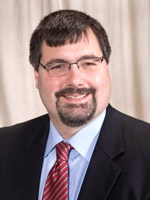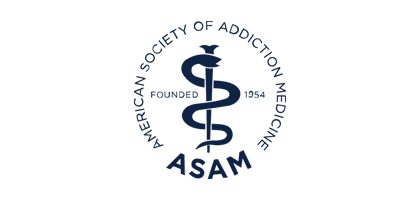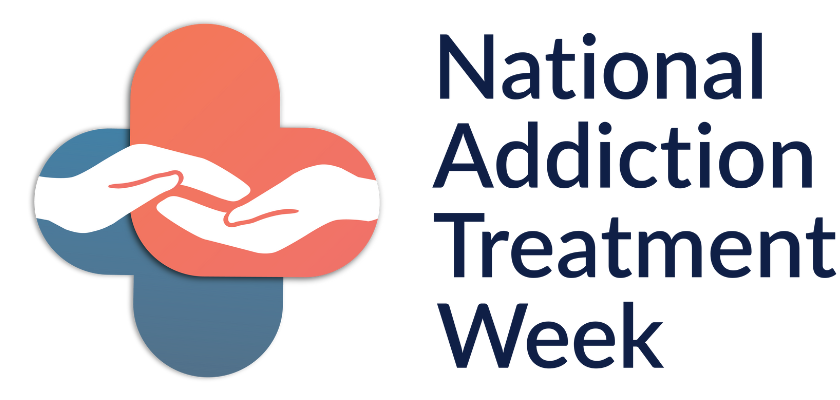News
Medical Toxicologist Dr. Timothy Wiegand Receives ASAM’s Annual Award
This year’s recipient of ASAM’s Annual Award treats addiction from a different perspective than most ASAM members.
In addition to specializing in Addiction Medicine, Timothy J. Wiegand, MD, FACMT, FAACT, DFASAM, specializes in Medical Toxicology.
Dr. Wiegand serves as Associate Professor of Emergency Medicine and the Director of Addiction Toxicology and the Toxicology/Addiction Consult Service at Strong Memorial Hospital and the University of Rochester Medical Center. He started treating addiction 20 years ago and has since worked to bridge the fields of addiction medicine and medical toxicology. His efforts to do so contributed to him winning ASAM’s Annual Award, which he said he is honored to receive.

“I was very humbled simply to be nominated,” Dr. Wiegand said. “I learned it was Dr. Ed Salsitz who nominated me. He is somebody that I have looked up to as a mentor. He is just a tremendous individual. I am really honored.”
The ASAM Annual Award recognizes and honors an individual for outstanding contributions to the growth and vitality of ASAM, for thoughtful leadership in the field, and for deep understanding of the art and science of addiction medicine, as well as for expanding the frontiers of the field of addiction medicine and broadening our understanding of the addictive process through research and innovation.
Dr. Wiegand is also the Medical Director for Huther Doyle, an addiction services provider in Rochester, New York, where he works in a collaborative model providing a variety of services for patients with substance use disorders. He also serves as facilitator for their Project ECHO program on Pain, Opioid Prescribing, and Addiction.
In addition to emergency department, hospital, and clinic work treating drug exposures, intoxication, and withdrawal and assisting with pain management for patients maintained on Medications for Opioid Use Disorder in the emergency department, hospital, and perioperative setting, Dr. Wiegand is involved with medical education and research in toxicology and addiction.
He is the Program Director for the UR Emergency Medicine & Toxicology based Addiction Medicine Fellowship Program, and he is core faculty for the Emergency Medicine residency at Strong Memorial Hospital. He lectures locally, regionally, nationally, and internationally on topics in addiction medicine and medical toxicology. Dr. Wiegand currently serves on the ASAM Board of Directors as Vice President and has served two terms as a board member of the American College of Medical Toxicology.
Throughout his career, Dr. Wiegand has worked to highlight opportunities that allow practitioners of medical toxicology to expand their practice to include addiction medicine.
“Addiction medicine is one of the practice pathways for medical toxicologists. There is substantial coverage of the treatment of substance use disorders and addiction in fellowship curriculum and in bedside clinical practice,” he said. “It has been a natural fit and growth opportunity for my practice -- not simply treating acute complications from substance use disorder, but also treating the underlying condition of addiction and expanding more into prevention and the longitudinal treatment of substance use disorder and addiction as well.”
Dr. Wiegand said the most rewarding part of treating addiction is simply seeing people recover.
“It’s not just the individual's health, but their family and their overall life,” he said. “I also really get tremendous satisfaction just simply from thinking about the pharmacology and the toxicology – it’s intellectually fascinating. Addiction is a pharmacologic disorder, and it is a brain disease. Understanding the pharmacology, which is part of my toxicology background, has really allowed me to understand addiction.”
His own battle with opioids has also helped him understand addiction.
“I struggled with it and got help,” he said. “Had I not had my own experience, I would not have focused on this area. I have always been interested in it, specifically the longitudinal care of individuals and seeing the success and the fact that people can get their health back and the functionality of families. It is tremendously satisfying to work in addiction medicine. There are success stories every day.”
Throughout his career, Dr. Wiegand has been encouraged by how the public and medical professionals have begun to change their views of people with addiction and addiction treatment.
“There still is a stigma regarding individuals with substance use disorder and how they're treated, but it has lessened,” he said. “Current surveys of medical trainees and the public, compared to perspectives from years ago, indicate that they're more likely to have experienced either personally or know someone close to them who had a substance use disorder. Their views of it are much less stigmatized and more in line with the medical model than has previously been the case, but there still needs to be an awful lot of work and education.”
Dr. Wiegand hopes not only that more medical toxicologists will treat addiction, but that more physicians, in general, will do so. The current need for addiction treatment, he added, is unprecedented.
“At this point, there have been over 100,000 overdose fatalities from April 2020 to April 2021,” he said. “The drug market is more dangerous with synthetic and designer drugs. Then the pandemic struck and that created a variety of challenges; there is more substance use and people are struggling with mental health. Now it is all hands-on deck. Anybody willing to expand their practice in this area will find a valuable opportunity. It is rewarding. And it's desperately needed.”
As he looks back on his career and considers what it means to receive ASAM’s Annual Award, Dr. Wiegand said his family deserves credit too.
“I’ve had tremendous support and also a tolerance of my long hours and time for travel for conferences and other meetings from my parents, Bert and Mary, my wife Bonnie, and kids Eli (15), Sera (13), and Charlie (5),” he said. “I
couldn’t have been successful without their help, support, and love.”



